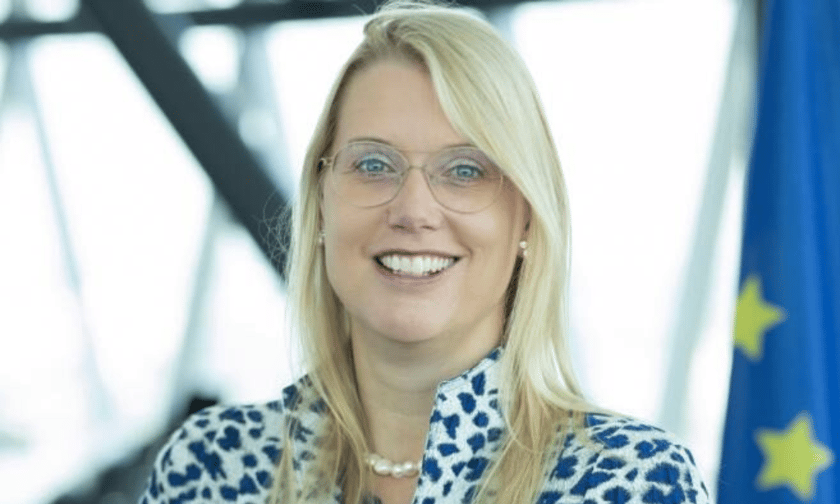

The increasing costs of natural catastrophes such as floods and wildfires present a growing challenge for governments and financial institutions, the European Union’s chief insurance regulator has warned.
Petra Hielkema (pictured above), chair of the European Insurance and Occupational Pensions Authority (Eiopa), stated that rising losses from natural disasters could leave more households uninsured and potentially destabilise banks.
Hielkema described climate-related risks as one of the most significant threats to financial stability.
In a report from the Financial Times, she noted that the financial strain arises not only from the immediate costs of property losses but also from the broader issue of households being unable to secure insurance, which in turn affects rebuilding efforts.
According to Eiopa, the annual cost of natural catastrophes in the EU, including droughts, storms and extreme cold, has averaged €44.5 billion over the past three years. This represents more than a twofold increase from the annual average of €17.8 billion recorded in the previous decade.
Despite these mounting losses, only about 25% of the €900 billion in damages caused by natural disasters over the past 42 years was insured, with coverage levels continuing to decline.
In response to these challenges, Eiopa has raised the capital requirements for EU insurers to account for natural disaster risks, increasing the necessary reserves by 10%. This adjustment has led to an almost 1% rise in overall capital requirements for insurers.
Hielkema highlighted concerns about the accelerating pace and frequency of damage, suggesting that national governments may struggle to manage the financial burden.
The impact of climate-related risks is also becoming a concern for the banking sector. Hielkema pointed out that banks with property assets on their balance sheets could face increased exposure as climate risks intensify, a warning that aligns with concerns raised by global regulators at the Financial Stability Board.
A report by Swiss Re in December indicated that global insurance losses from natural catastrophes were expected to surpass $135 billion in 2023. Uninsured losses often become the responsibility of governments.
In Spain, for example, the government committed €10 billion last October for reconstruction efforts following severe flooding in the Valencia region.
To address the issue, Hielkema is advocating for an EU-backed public-private reinsurance partnership aimed at reducing costs and increasing the availability of insurance coverage for natural catastrophe risks.
Eiopa also supports initiatives such as impact underwriting, where insurance coverage is linked to risk reduction measures, and a labelling system to indicate the exposure of properties to risks like flooding and wildfires.
Geopolitical risks also pose challenges for global coordination on financial regulation. Hielkema acknowledged concerns about the potential impact of political changes in the US, but said she remained confident that US insurance supervisors would continue to focus on climate-related risks, given the financial toll of events such as California wildfires and hurricanes in Florida.
Climate change, she said, is driving risk levels higher, leaving more people unable to insure their homes and increasing financial vulnerabilities across multiple sectors.
What are your thoughts on this story? Please feel free to share your comments below.
